Sudan expands environmental surveillance sites to enhance detection of polioviruses
30 November 2021 – Until last year, environmental surveillance for polioviruses in Sudan was confined to Khartoum State, the country’s capital. In the context of a circulating vaccine-derived poliovirus type 2 (cVDPV2) outbreak that has paralysed 58 children, collaboration between Sudan’s Federal Ministry of Health, the National Polio Laboratory and WHO colleagues across the Region has expanded the practice from five sites in this one state, to 14 sites in seven states.
 A Federal Ministry of Health employee collects wastewater samples from one of the environmental surveillance sites in Khartoum
A Federal Ministry of Health employee collects wastewater samples from one of the environmental surveillance sites in Khartoum
Environmental surveillance is the practice of testing sewage runoff for the presence of viruses and other pathogens. Depending on the immunity levels of children in any given community, poliovirus can circulate for a long time without paralysing a child, making environmental surveillance one of the Global Polio Eradication Initiative’s most important surveillance tools.
Sudan’s environmental surveillance expansion plan has brought the practice to West Darfur, North Darfur, East Darfur, Red Sea, White Nile and Gezira states – all areas with frequent mass population movement. With polio outbreaks in multiple neighbouring countries, it is crucial to enhance the surveillance measures in place to detect any importation and respond to it as quickly as possible.
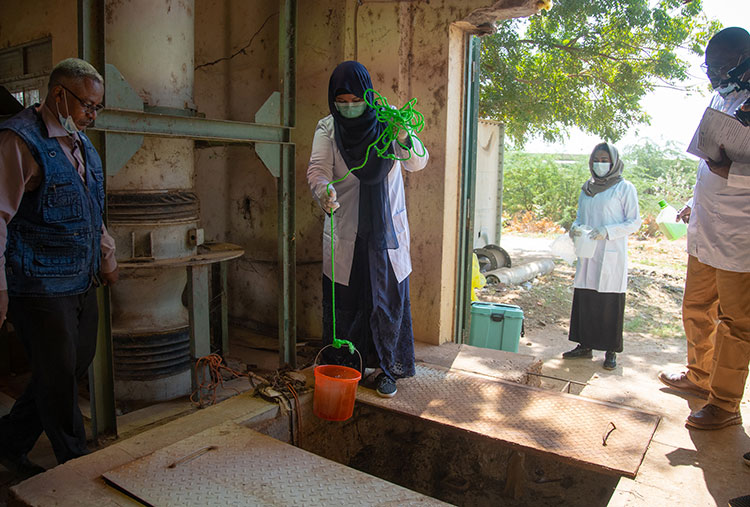 Between one and two litres of sewage runoff is poured into a labelled jerrycan. It is then sealed, wiped down and transported to the National Polio Laboratory in reverse cold chain
Between one and two litres of sewage runoff is poured into a labelled jerrycan. It is then sealed, wiped down and transported to the National Polio Laboratory in reverse cold chain
In the first half of 2021, the WHO country office, with support from the Central Surveillance Unit of the Federal Ministry of Health, led the expansion of the environmental surveillance network, giving the polio programme a whole new level of visibility over large parts of the country. Mr Hatim Othman, Manager of the National Polio Laboratory in Sudan played a major role in training state-level officers and district-level personnel on all aspects of environmental surveillance, including the collection of samples.
“The current cVDPV2 outbreak showed us the critical importance of environmental surveillance. It also gave us confidence in our ability to track the virus in the environment as well as in human beings,” said Dr Ni’ma Saeed Abid, the WHO Representative in Sudan.
Following a coordinated response, including two high-quality national vaccination campaigns, communication and education efforts and improvements to other programmatic areas, there has been no detection of cVDPV2 in 2021. The last case was a child whose paralysis had a date of onset of 18 December 2020 and the last positive environmental isolate was collected in Khartoum in November 2020. However, the risk of cVDPV2 transmission remains high as nearby countries continue to battle cVDPV2 outbreaks.
 A National Polio Laboratory employee in Khartoum stores an environmental surveillance sample for testing
A National Polio Laboratory employee in Khartoum stores an environmental surveillance sample for testing
“The expected formal closure of the outbreak in 2022 will be good news after a challenging two years, but the utility of Sudan’s increased ability to detect poliovirus in the environment will last long into the future,” said Dr Mohammad Taufiq Mashal, the Team Lead for Polio and Immunization at WHO’s Sudan country office.
“It’s critical to have effective environmental surveillance to maintain the polio-free status of Sudan,” he said.
Statement from the WHO Regional Director on WHO's zero tolerance policy on sexual exploitation and abuse
“The World Health Organization has zero tolerance for sexual exploitation and abuse and takes all allegations of misconduct seriously at all levels of our workforce. I appreciate the swift response by the National Emergency Operations Centre in Pakistan to allegations of harassment of a polio frontline worker.
WHO has an uncompromising commitment to uphold and promote policies that prevent sexual exploitation and abuse and all forms of harassment. The polio eradication programme in particular relies on female frontline workers to carry out the essential work of eradication and ensuring all enjoy a respectful and safe environment within which to work is a basic prerequisite.
Across the Eastern Mediterranean Region WHO is taking critical steps to ensure the protection and safety of all female frontline workers and to create a culture in which there is no opportunity for sexual exploitation and abuse to happen, no impunity if it does and no tolerance for inaction.
All WHO staff, consultants and contractors are receiving refresher training for the prevention of sexual exploitation and abuse and staff with expertise in the prevention, detection and response to sexual exploitation are being recruited to ensure more robust safeguards are in place in our offices. Given the scale of our field operations in Afghanistan, Pakistan, Somalia, Sudan, and Yemen, WHO is taking extra measures to prevent and vigorously respond to incidents of harassment and abuse.”
The polio retirees spending their golden years on the eradication trail
For many of the women and men who spent their careers fighting polio, retirement offers not rest and relaxation, but a continuation of their life’s work towards eradication. Across the Eastern Mediterranean Region, once-and-forever polio fighters are inspiring the next generation of eradicators with their commitment to the cause and belief in the benefits of a polio-free future.
Meet some of the Region’s most beloved polio fighters as they look back on their careers and describe their motivation to continue their quest, for as long as it takes.
Dr Ali Farah, Somalia
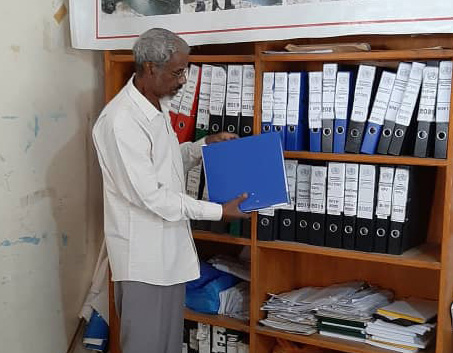
Back in 1997, during the devastating civil war, Dr Ali Farah started a pilot project to conduct Somalia’s first-ever national immunization days. Today, that pilot project is one of the reasons Somalia has not seen a case of wild poliovirus in more than seven years.
Dr Farah retired in 2015 after years of hard work in a highly complex, volatile and risky context. Yet he continues to fight polio by providing technical support to the polio programme team, participating in social mobilization activities and training district-level polio officers and vaccinators.
“I always feel that we must keep working to fight polio. It’s a humanitarian action,” he says. “Technical staff still call me occasionally to receive guidance about AFP cases and other technical areas. I feel so happy to provide advice and support when needed.”
Dr Farah has also utilized his long experience with the polio programme to support COVID-19 immunization in Somalia.
“This COVID-19 campaign wouldn’t succeed if there was no polio infrastructure. We used the polio system and network to make it happen,” he says.
Professor Elsadig Mahgoub, Sudan
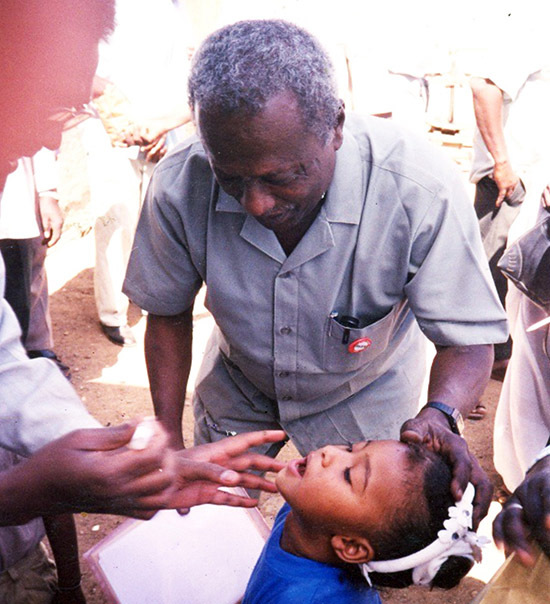
After completing his bachelor’s degree in 1969, Professor Elsadig Mahgoub trained as a physician and epidemiologist. He devoted his career to infectious diseases, largely focusing on disease surveillance. In February 2000, he focused his efforts on polio, particularly surveillance for acute flaccid paralysis (APF), the primary symptom of paralytic polio.
Although he retired four years later, Professor Elsadig has not stopped working or providing his technical support to polio programmes in Sudan and across the Region.
“I’m obliged to continue working. My enjoyment is when I see progress towards polio eradication,” he says. “The service we’re providing is critical. We always need to be vigilant to avoid any setback to our achievements towards polio eradication. When we end polio for good, then I will truly resign.”
Dr Mohammed Hajar, Yemen
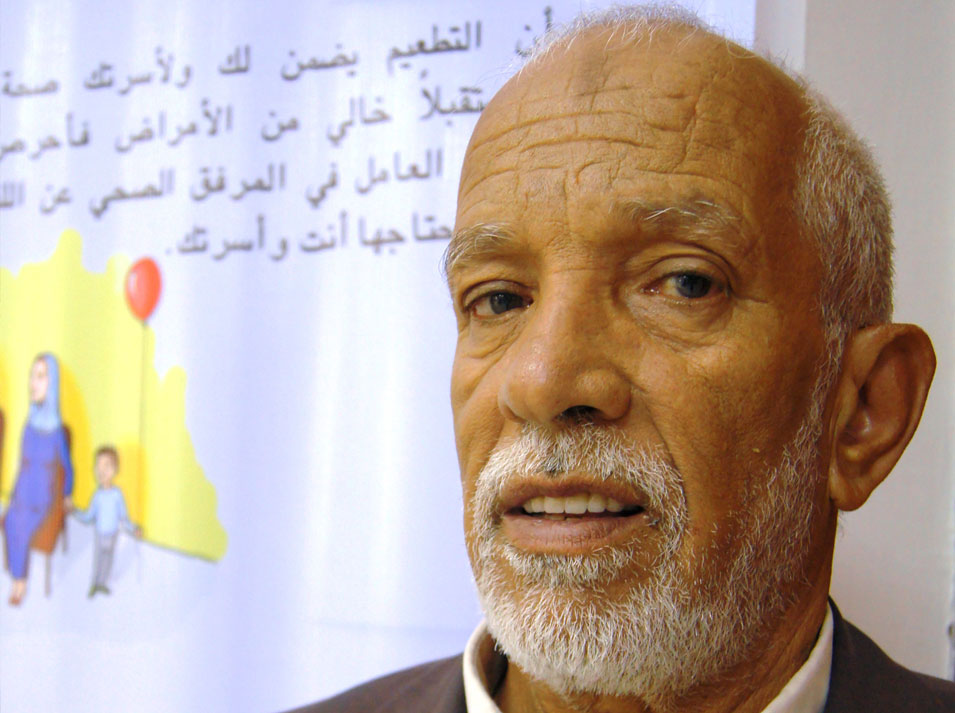
Yemen’s Dr Mohammad Hajar is one of the oldest, most veteran health professionals in Yemen, having served the health sector and combated infectious diseases, including polio, for around 50 years.
In 1977, Dr Hajar was one of the founders of Yemen’s expanded programme on immunization. He played a major role in planning and conducting the first-ever polio campaigns in the country, and he contributed substantially to setting up the epidemiological surveillance system for polio and other diseases.
“Even after reaching retirement age in 2009, I continued to work for the polio programme, which I consider as one of my sons. Until now, I follow up and evaluate the activities of the immunization programme and polio campaigns,” says Dr Hajar.
“I had the privilege of working with nine WHO representatives and more than 10 ministers of health in Yemen to help Yemen reach a polio-free status.”
Dr Ibrahim Barakat, Egypt
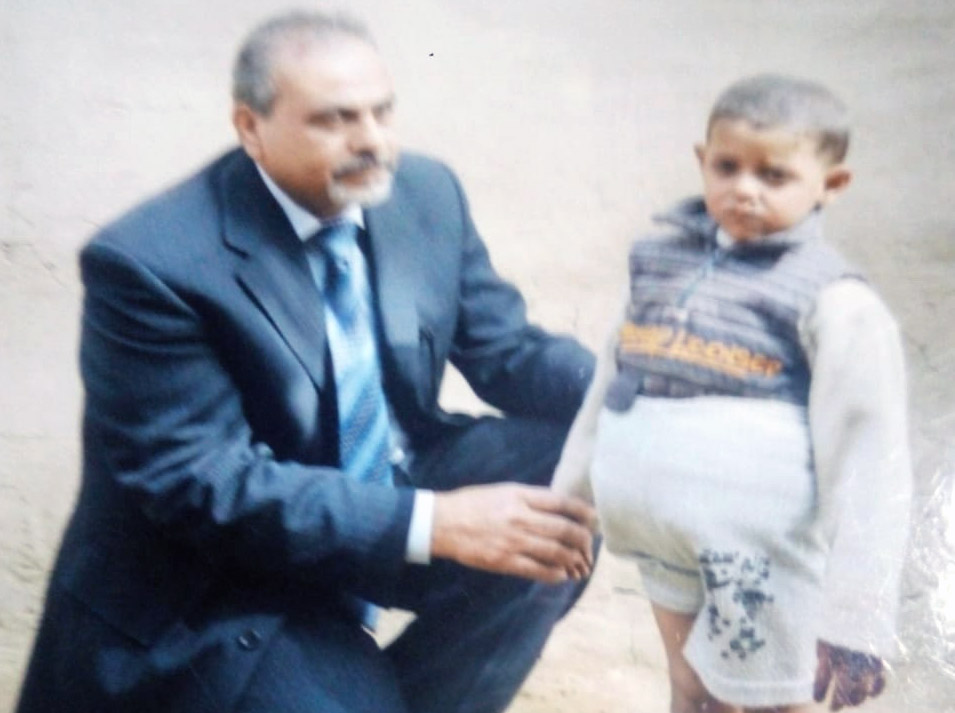
When Dr Ibrahim Barakat was appointed as a manager of Egypt’s expanded programme on immunization in 2000, he was determined to achieve something remarkable – a polio-free Egypt.
“It was a hard journey, but we did it. Egypt was declared polio-free in 2006,” he says.
In 2009, Dr Barakat retired, but he hardly rested. “I cannot stop working when it comes to polio eradication. I take great comfort in working hard to combat this disease whether in Egypt or any place in the world.”
After 12 years of retirement, Dr Barakat still considers his office in the Ministry of Health and Population as “a second home.”
“I continue going to the office every working day to plan, supervise and evaluate different polio activities, including polio vaccination campaigns, risk assessment and AFP surveillance. I can never be complacent,” he says.
“This is my life. My real retirement starts when I see this disease completely wiped out from all parts of the world.”
Mr Alam and Mrs Fatima, Pakistan
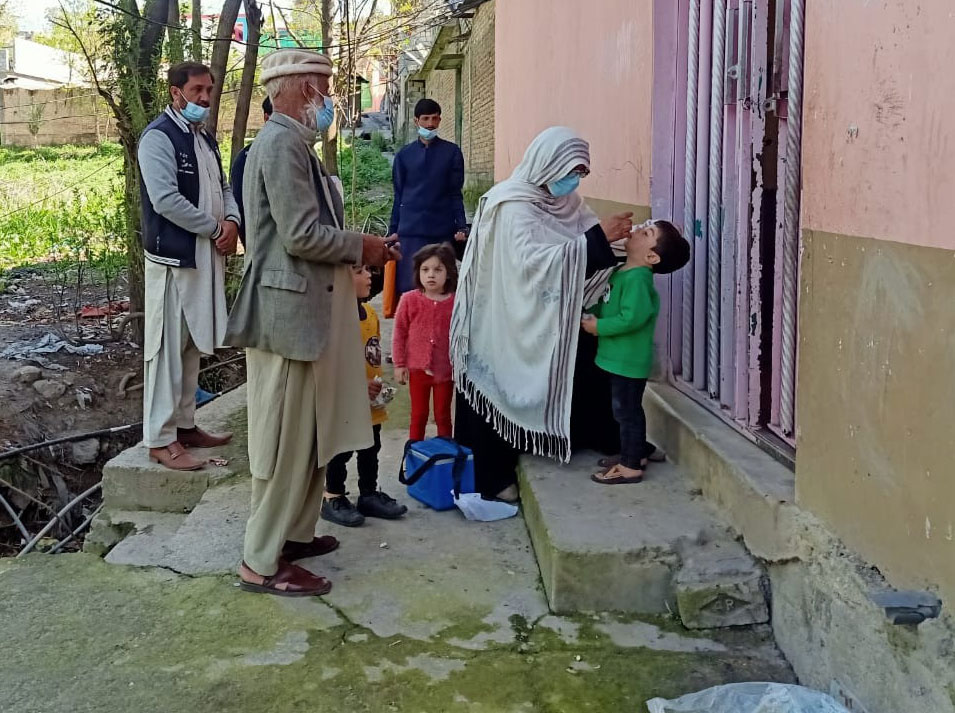
Khursheed Alam, 68, and Kaneez Fatima, 56, are a married couple who have spent 25 years working in the polio eradication programme in Batagram district of Khyber Pakhtunkhwa province, Pakistan.
Rain or shine, Mr Alam and Mrs Fatima have taken part in countless door-to-door vaccination campaigns, helping to vaccinate thousands of children.
“Now those little children have grown up, some have gotten married and had children who we have also vaccinated. This is fascinating and rewarding for us,” says Mr Alam. “Wherever we go, people welcome us and don’t let us go without offering food.”
Mrs Fatima personally knows every child in her neighbourhood, including the newborns. She maintains close relationships with the mothers in her community and gives them health and hygiene advice.
Despite their age and medical complications such as asthma, their commitment to the polio programme remains strong.
“We take our work as a divine duty to serve our community for the sake of God. To see healthy children with smiles on their faces is our reward. This has kept us going for so long,” says Mrs Fatima.
Dr Faten Kamel, Egypt
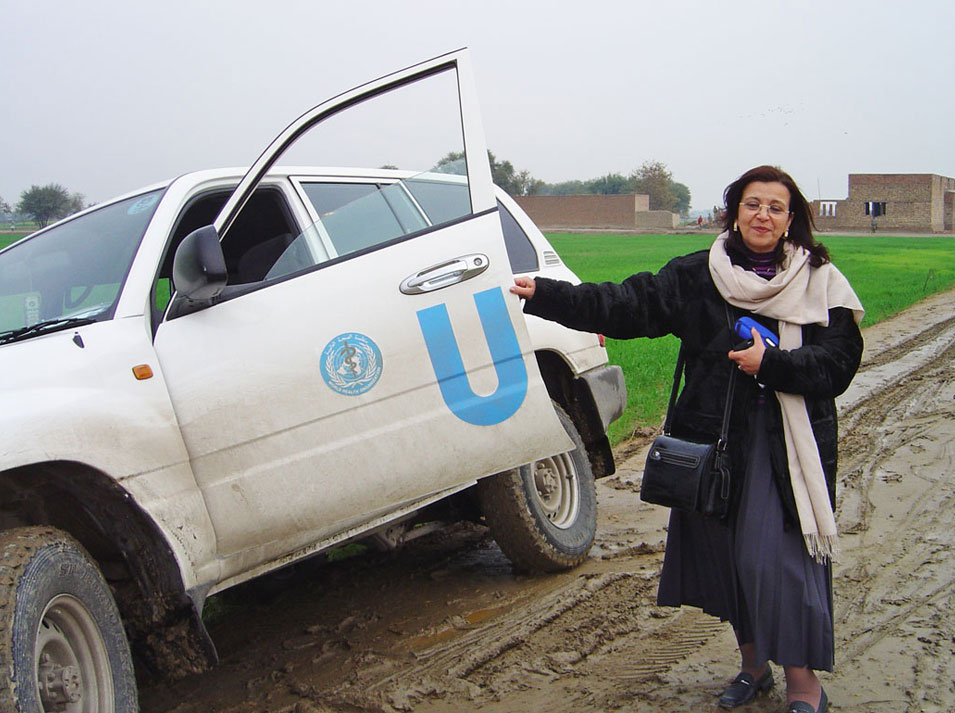
Dr Faten Kamel took a leading role in polio eradication efforts in the 1990s and early 2000s – years where the Global Polio Eradication Initiative made considerable gains against polio.
Growing up in Alexandria, Egypt, Dr Faten was exposed to the life-altering effects of polio on the people around her. She saw the human toll of the disease, and was inspired by the work of her father, a surgeon and Rotarian.
“We pushed the boundaries to make the programme more effective, shifting to house-to-house vaccination, detailed microplanning and mapping, retrieval of missed children and independent monitoring,” she says.
For Dr Faten, every child can, and must, be reached.
“If someone comes and says this area is inaccessible, this is not an answer for me. I ask: What should we do to reach? I like to make use of the ideas and experience that come from local people,” she says.
Dr Faten is proud to continue to be part of the polio eradication programme and looks forward to the day when polio eradication is achieved. After that, she plans to spend more time with her family in Australia.
“As a grandmother, I am especially determined to finish the job. I want my grandkids to grow up in a world free of polio. This will be my contribution to their futures.”
Regional Subcommittee on Polio Eradication and Outbreaks meets
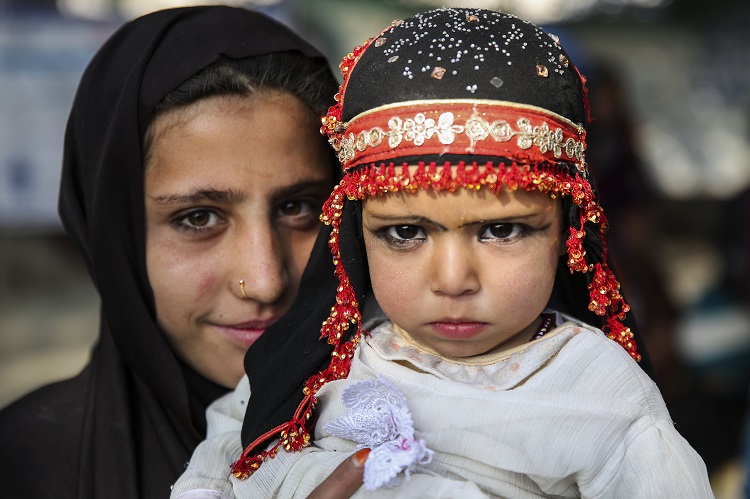 8 July 2021 – The second meeting of the Regional Subcommittee for Polio Eradication and Outbreaks took place virtually on 1 July 2021, bringing together ministers of health and officials from across the Eastern Mediterranean Region.
8 July 2021 – The second meeting of the Regional Subcommittee for Polio Eradication and Outbreaks took place virtually on 1 July 2021, bringing together ministers of health and officials from across the Eastern Mediterranean Region.
Convened by Dr Ahmed Al-Mandhari, WHO Regional Director for the Eastern Mediterranean, the Committee brings together Member States to focus on renewing regional solidarity and commitment to achieve polio eradication.
The spread of polio in the Eastern Mediterranean Region remains designated as a Public Health Emergency of International Concern (PHEIC) under the International Health Regulations (IHR 2005). Wild poliovirus remains endemic in 2 countries (Afghanistan and Pakistan), and outbreaks of circulating vaccine-derived polioviruses type-1 (cVDPV1) and type-2 (cVDPV2) have also emerged, the latter expanding significantly in the Region.
Addressing the meeting, Dr Al-Mandhari said “While this assembly is still relatively new, I am heartened by the way that the Region is prioritizing this emergency. Poliovirus circulation inside our borders and inside our Region is our problem – and its eradication will be our solution.’
The forum was updated on the epidemiological situation and polio risks in the Region, as well as key programmatic developments, including the visit of the Polio Oversight Board to Pakistan in June and the launch of "Delivering on the Promise of a Polio-free World, the new Polio Eradication Strategic Plan 2022-2026", developed in close consultation across Global Polio Eradication Initiative (GPEI) stakeholders. The strategy lays out the roadmap to securing a polio-free world, promoting collective ownership and accountability, and enabling affected Member States to provide the necessary support, expertise and mobilization of resources to ensure a regional solution and long-term success.
In her opening remarks, Committee Co-chair, H.E Dr Hala Zayed, Minister of Health and Population, Egypt, congratulated the GPEI on the launch of the new strategy, reminding committee members that ‘a strategy means nothing if we don’t implement it. Empowering local leaders. Engaging communities. Identifying and vaccinating persistently missed children. This is where we must focus our energy and work closely with partners on the ground to have the most impact.’
Member States were also updated on preparations for the introduction of novel oral polio vaccine type 2 (nOPV2), an improved version of the workhorse of the polio programme. nOPV2 has the potential to quickly stop outbreaks of vaccine-derived poliovirus type 2 (VDPV-2) and was recommended by WHO for emergency use in November 2020. Preparations for the use of the vaccine, which are under way across the Eastern Mediterranean Region, include stringent requirements regarding cold chains, logistics, disease surveillance and communication capacity.
Dr Wahid Majrooh, Acting Minister of Public Health, Afghanistan, updated the forum on recent developments in the country. Although recording just one case of wild poliovirus to date in 2021, the polio programme is currently operating amid increasing insecurity and a crippling rise in COVID-19 cases.
Addressing the meeting, Committee Co-chair Dr Abdul Rahman Mohammed Al Oweis, Minister of Health and Prevention, United Arab Emirates, said that the United Arab Emirates ‘will continue to be a champion in the push to protect every last child from polio. I call on you, my dear colleagues, to do the same. We must continue to advocate for polio eradication in all possible international fora, including in key United Nations and high-level political forums.’
The Committee will next meet in October in the side-lines of the 68th session of the Regional Committee for the Eastern Mediterranean.
Related link
Regional Subcommittee holds inaugural meeting
16 March 2021








